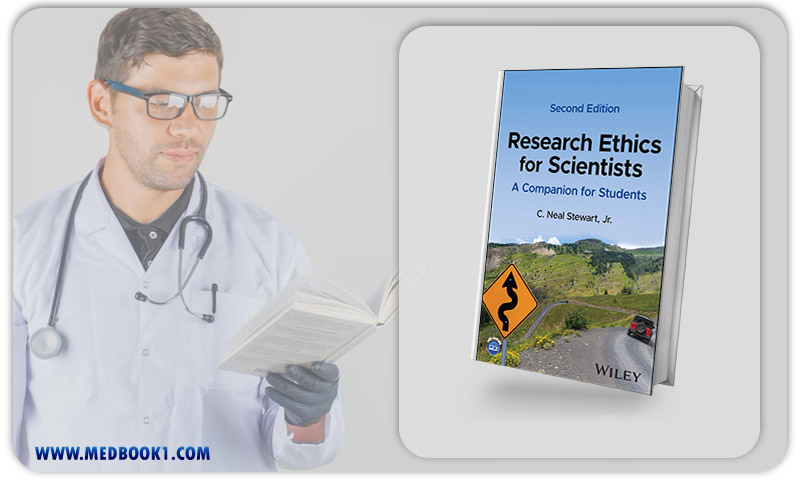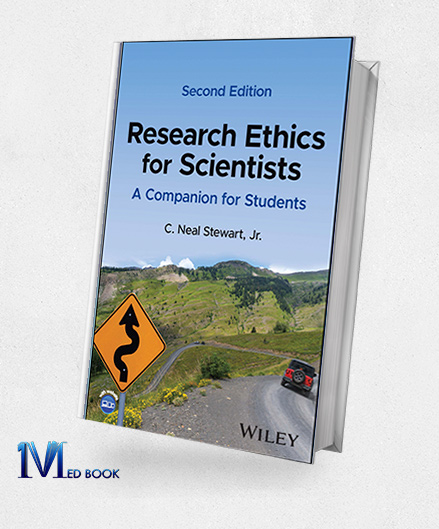Research Ethics for Scientists, 2nd Edition (Original PDF from Publisher)
Research Ethics for Scientists, 2nd Edition (Original PDF from Publisher)
$75.00 Original price was: $75.00.$35.00Current price is: $35.00.
- The files will be sent to you via E-mail
- Once you placed your order, we will make sure that you receive the files as soon as possible
Research Ethics for Scientists, 2nd Edition (Original PDF from Publisher)
1.1.Description
Research Ethics for Scientists, 2nd Edition (Original PDF from Publisher), now in its fully updated second edition, serves as a comprehensive textbook that provides advanced students and young scientists with valuable guidance for navigating the ethical challenges commonly encountered in academic scientific research.
In the face of increasing numbers of scientific journals, government regulations, and institutional guidelines, research scientists find themselves confronted with ethical dilemmas more frequently. Even well-seasoned and honest scientists can inadvertently engage in research misconduct or fail to identify and address intentional misbehavior.
Research Ethics for Scientists, 2nd Edition (Original PDF from Publisher) is an authoritative guide that offers practical advice and best practices in scientific research. This essential resource critically examines the key dilemmas that arise in research management and practice, empowering students and young scientists to conduct research that upholds the highest ethical standards. The book is organized into logically structured chapters that explore crucial areas for sustained success in science, covering topics such as ideas, people, data, publications, and funding.
The second edition features updated content throughout, addressing recent advancements in detecting and adjudicating research misconduct, vulnerabilities in research practices highlighted by the COVID-19 pandemic, and emerging methods used to manipulate the system and skew the peer review process.
New case studies delve into issues such as harassment and bullying in training and mentorship, anti-science and pseudoscience, equality and equity concerns, data fabrication, and more. Moreover, Research Ethics for Scientists, 2nd Edition (Original PDF from Publisher) integrates discussions on gender, race, student training, and other significant social matters.
Research Ethics for Scientists, 2nd Edition (Original PDF from Publisher) provides up-to-date coverage of pressing issues, including the ethics of rushing to publish and the utilization of text-similarity detection software to identify plagiarism.
Research Ethics for Scientists, 2nd Edition (Original PDF from Publisher) also explores image analysis techniques for detecting data and image manipulation. Additional material focuses on current trends such as universal open access (OA) publishing, the proliferation of research metrics, new models for peer review, the complexities of working for multiple employers, and the emergence of “shadow labs” for individual scientists. To further aid learning, a companion website offers access to PowerPoint slides featuring case studies and figures.
Authored by an experienced researcher and Ph.D. mentor, Research Ethics for Scientists: A Companion for Students, Second Edition is an indispensable resource for graduate students, postdoctoral researchers, early-career professors, and scientists involved in mentoring aspiring researchers.

Research Ethics for Scientists, 2nd Edition (Original PDF from Publisher)
1.2.Key Features
Research Ethics for Scientists, 2nd Edition (Original PDF from Publisher) offers comprehensive guidance tailored to advanced students and budding researchers, addressing prevalent ethical challenges encountered in scientific academia.
This authoritative handbook delineates best practices in scientific research, spotlighting critical issues spanning research management and conduct. The updated edition integrates recent developments in the field, covering a wide array of ethical dilemmas arising from the expanding landscape of scientific publication, government regulations, and institutional guidelines.
Notably, it delves into key areas crucial for sustained success in scientific endeavors: ideas, individuals, data, publications, and funding. This edition incorporates new case studies shedding light on issues such as harassment, pseudoscience, equality, and data fabrication, among others, integrating crucial social aspects like gender, race, and student training.
Furthermore, Research Ethics for Scientists, 2nd Edition (Original PDF from Publisher) addresses emerging trends including rapid publishing ethics, plagiarism detection, image manipulation, and evolving models in peer review and scientific work environments. The book provides a companion website with supplementary materials, making it an indispensable resource for graduate students, postdoctoral researchers, early-career professors, and educators involved in nurturing future scientists.

Research Ethics for Scientists, 2nd Edition (Original PDF from Publisher)
1.3. About Writer
Dr. C. Neal Stewart Jr. is a distinguished figure in the field of plant sciences, renowned for his groundbreaking research and influential contributions to biotechnology and plant genetics. Holding the position of Professor and Racheff Chair of Excellence in Plant Molecular Genetics at the University of Tennessee, Dr. Stewart has dedicated his career to advancing agricultural biotechnology and genetic engineering for crop improvement.
His research primarily focuses on developing innovative strategies for enhancing crop productivity, sustainability, and resilience against environmental stresses. Dr. Stewart’s pioneering work encompasses various aspects of plant biotechnology, including the development of genetically modified crops, gene editing techniques, and biocontainment strategies in plant systems.
He has authored numerous research papers, book chapters, and patents, cementing his status as a prominent authority in the realm of plant genetics and biotechnology.

Research Ethics for Scientists, 2nd Edition (Original PDF from Publisher)
Summary
Research Ethics for Scientists, 2nd Edition (Original PDF from Publisher) serves as an indispensable guide for advanced students and young researchers navigating the intricate ethical landscape inherent in scientific research. This comprehensive textbook meticulously explores prevalent ethical challenges encountered within academia, encompassing diverse aspects of research conduct and management.
Updated to reflect contemporary developments, the edition adeptly addresses emerging issues provoked by the expanding scientific milieu, including innovations to detect and address research misconduct, vulnerabilities highlighted by the COVID-19 pandemic, and evolving methods of circumventing peer review processes.
This edition integrates social issues such as gender, race, and training, presenting new case studies that tackle harassment, pseudoscience, equality, data fabrication, and more.
Covering topics like plagiarism detection, image analysis, open-access publishing, and evolving peer review models, Research Ethics for Scientists, 2nd Edition (Original PDF from Publisher) provides a rich resource complemented by a companion website, catering to graduate students, postdoctoral researchers, early-career professors, and educators involved in mentoring future scientists.



Reviews
There are no reviews yet.